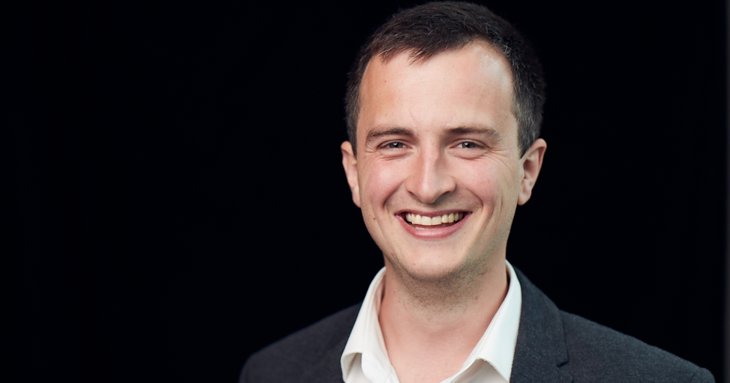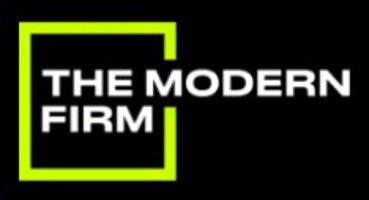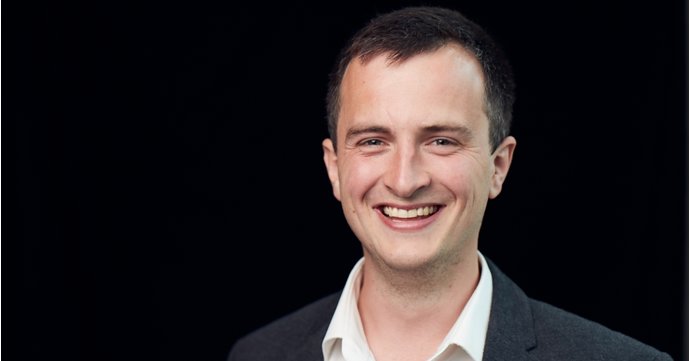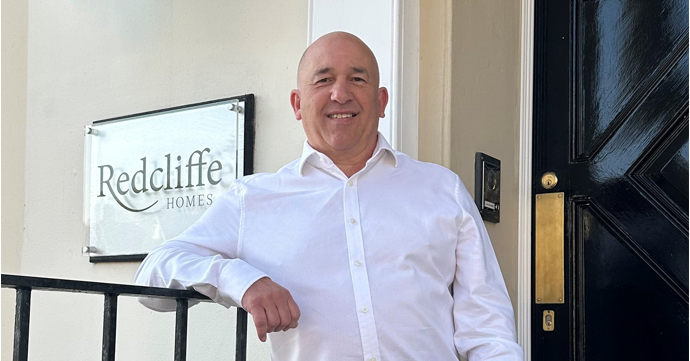Following its successful launch in March 2025, SoGlos sits down with The Modern Firm's forward-thinking founder Luke Farren to discuss the impact of technology on the future of the accountancy sector — and how The Modern Firm can help practices embrace it.
Tell us a bit about your background.
I’ve worked in the UK accounting sector for the last 13 years or so. I originally started my career at a small owner-managed practice in Cheltenham as an apprentice for three years. Eventually I left that firm with my now wife moving down to experience the London life, spending about five or six years down there.
I worked at a couple of different firms, then towards the back end of that time ended up joining forces with my old boss and launching Acclivity, which was a small boutique advisory firm working predominantly with venture-backed technology startups. That business ran for about three years before being acquired by Cooper Parry back in January 2023.
Coming on board as part of the acquisition, I then worked as head of operations for the Cooper Parry tech and high growth team before moving into the M&A and integrations space, supporting the integration of acquired businesses into the firm's system.
For me, throughout that entire journey, I've seen how the industry has evolved rapidly in terms of technology, really transforming how businesses operate. The way we ran Acclivity and, to an extent, the way we were running teams within Cooper Parry, we leaned heavily into that more modern, more efficient way of running an accountancy practice.
What does the rate of technological advancement mean for accountancy firms now?
A big part of the industry at the moment is still nowhere near where they need to be in terms of technology — which is going to become not just important but paramount for accountancy practices to remain relevant moving forward. The entire industry is moving at such a pace now that a lot of people can't keep up with the changes and I personally think in 12 to 24 months' time, the landscape is going to be materially different to what it is now.
The time for accountancy firms to go on that journey and lean into that new way of working is now — and if they don't, they're going to remain irrelevant long-term and ultimately cease to exist.
Change management is by far
the biggest challenge, both in terms of ensuring
that the process that sits behind it is correct but also ensuring that people's mindsets can be altered in a way
that they can see real value. For firms that have done things in a particular way for such a long time, there often needs to be a huge educational piece to address the change that needs to happen.
I have a huge passion for upskilling and helping accountancy firm owners and businesses in general to go on that change journey because I think the industry is crying out for it.
What changes do accountancy firms need to make?
The way that accountancy firms historically have been structured and operate has been once-a-year compliance-type relationships where clients would drop off their books and records and have their accounts and tax returns completed. Accountants would deliver that output and charge quite a hefty fee because the process is quite manual, complicated and clunky.
The advancements in technology have meant that the ability to deliver work has become quicker, more efficient and more effective. Ultimately the world of compliance (year-end accounting, monthly bookkeeping, management accounts, VAT returns) has become a race to the bottom in terms of the value that accountancy firms can charge clients, because it can now be done in a pretty autonomous end-to-end way without much need of actual human involvement.
And that's going to continue at pace over the coming months and years, so ultimately the historical way that accountancy firms were able to make money is becoming less and less relevant because of those advancements — and firms are having to figure out how they can pivot and provide new value and services.
Advisory work is now much more pivotal and more interesting and beneficial than just compliance. Ultimately, firms are going to have to lean a lot more into that advisory-led relationship and deliver value that sits beyond just producing numbers and figures each month or year.
They're also going to have to start figuring out what other services they can deliver and find ways to remain competitive and relevant — and I think a lot of that centres around digital transformation, supporting clients on implementing the types of accounting tools, software and finance systems that will be relevant to their business models moving forward.
More broadly across the industry, professional services is going to end up becoming more joined up and combined, so I think you'll see accountancy firms also delivering legal services, perhaps mortgage advisory work, not necessarily as part of the core accounting business, but doing all of those kinds of things under one roof.
As a cyber superpower, are there opportunities unique to Gloucestershire?
With Cheltenham and its position as the UK's cyber capital and where we're headed with the Golden Valley development, there's going to be an influx of entrepreneurs and startups coming to Cheltenham and expecting their accountants to be operating in a way that is more in line with their modern, forward-thinking approach.
That is a huge opportunity for so many accountancy
businesses across Gloucestershire; firms will be able to talk to that audience and that demographic if they are more tech-enabled and can do all of that right.
You officially launched The Modern Firm in March 2025, how can you help accountancy firms embrace the future?
The way that I engage with any practice at the moment is with an initial sprint of audit and discovery work, which essentially is me and the team going into a business and being able to do an entire back office audit on their people, processes, systems and technologies, mapping out the current state of the firm and delivering a set of recommendations to improve their model moving forward.
The reality is that the majority of firms don't have the time or capacity to do that work themselves, which is often why they've reached out to me in the first place, so what I'm expecting is for firms to take that audit work, get comfortable with what we're describing in terms of the current state and the new state, then engage us to implement those new systems, new processes and new technologies, resulting in a more modern, well-structured business for them.
There are scenarios in which we'd remain involved longer-term, with ongoing monthly consultancy alongside that; then there are specific technology implementation projects, resourcing work and other things which we can support on.
Although we can do things in silos, I'd say to businesses that if they are going to rip that plaster off, rip it off properly and do the entire practice at once. By doing that, we've captured all of the different nuances, problems and things that might end up coming back to bite later.
What makes The Modern Firm's approach unique?
The detail that goes into those reports and recommendations is very bespoke. It's impartial as well because I'm not affiliated or aligned to any particular vendor or software provider.
Naturally there are platforms and vendors that I consider best-in-class, but one of the USPs is remaining impartial to the market and being able to provide a real bespoke approach to any accounting practice.
AI is one of the hottest topics in technology at the moment – how is AI affecting the accountancy sector?
It is going to
fundamentally change the industry long-term, although there is still too much noise
surrounding it in the accountancy sector, in my opinion. So many practices don't have the foundations in place to be able to properly benefit from or leverage what AI is going to be able to do for them.
I did a talk a couple of weeks ago at the digital accountancy show on this exact topic, that AI is coming, it's great, it's going to really improve your ways of working and how you can deliver value, be more profitable, all of those good things, but so many firms need to ensure that they've got their core technology, their core data structured and that it's all usable in a way that can actually lean into AI capabilities.
Across the industry, accountancy firms get really excited about the buzzwords that centre AI, but if you plug that in without having a well-structured internal dataset, a well-oiled wider technology stack, then it's that old analogy of garbage in, garbage out. Many practices are sleepwalking into a disaster because they don't have the basics in place yet to be able to fully leverage what AI can do.
This is one of the things The Modern Firm will help with.
What advice would you give to firms who want to embrace new technology but aren't sure where to start?
The only real way to figure out what is going to work for a practice is to have an initial, no obligation conversation, then off the back of that we can figure out whether or not the time is right and whether The Modern Firm can help.
There isn't a size of firm that's right or wrong for me, it boils down to the mindset of the practice and where they are in their journey.
If any business is interested in talking about their own digital transformation journey and modernisation, I'm happy to talk! It all starts with that discovery conversation.
To book a discovery call with Luke at The Modern Firm, visit calendly.com/luke-modernfirm.






















